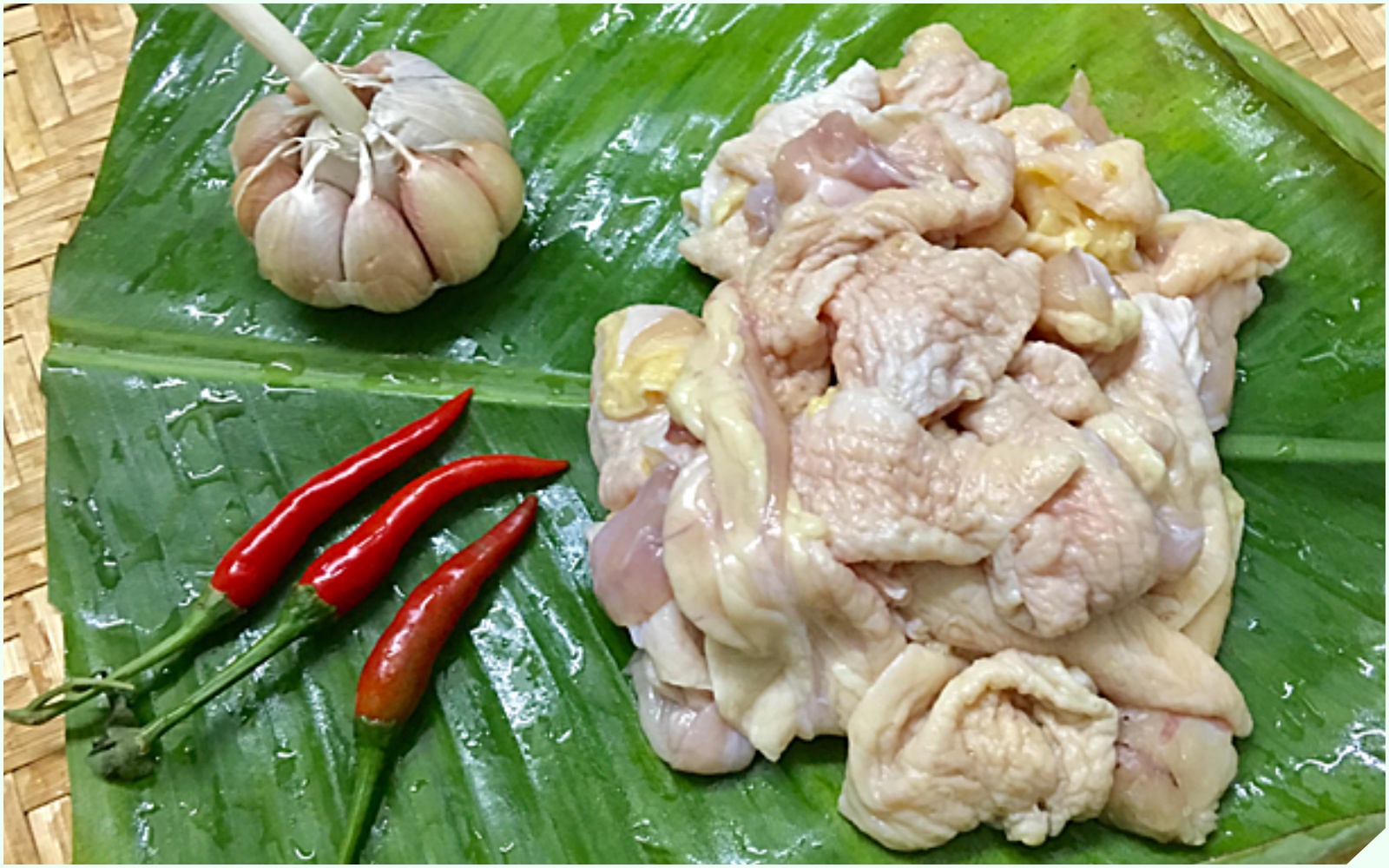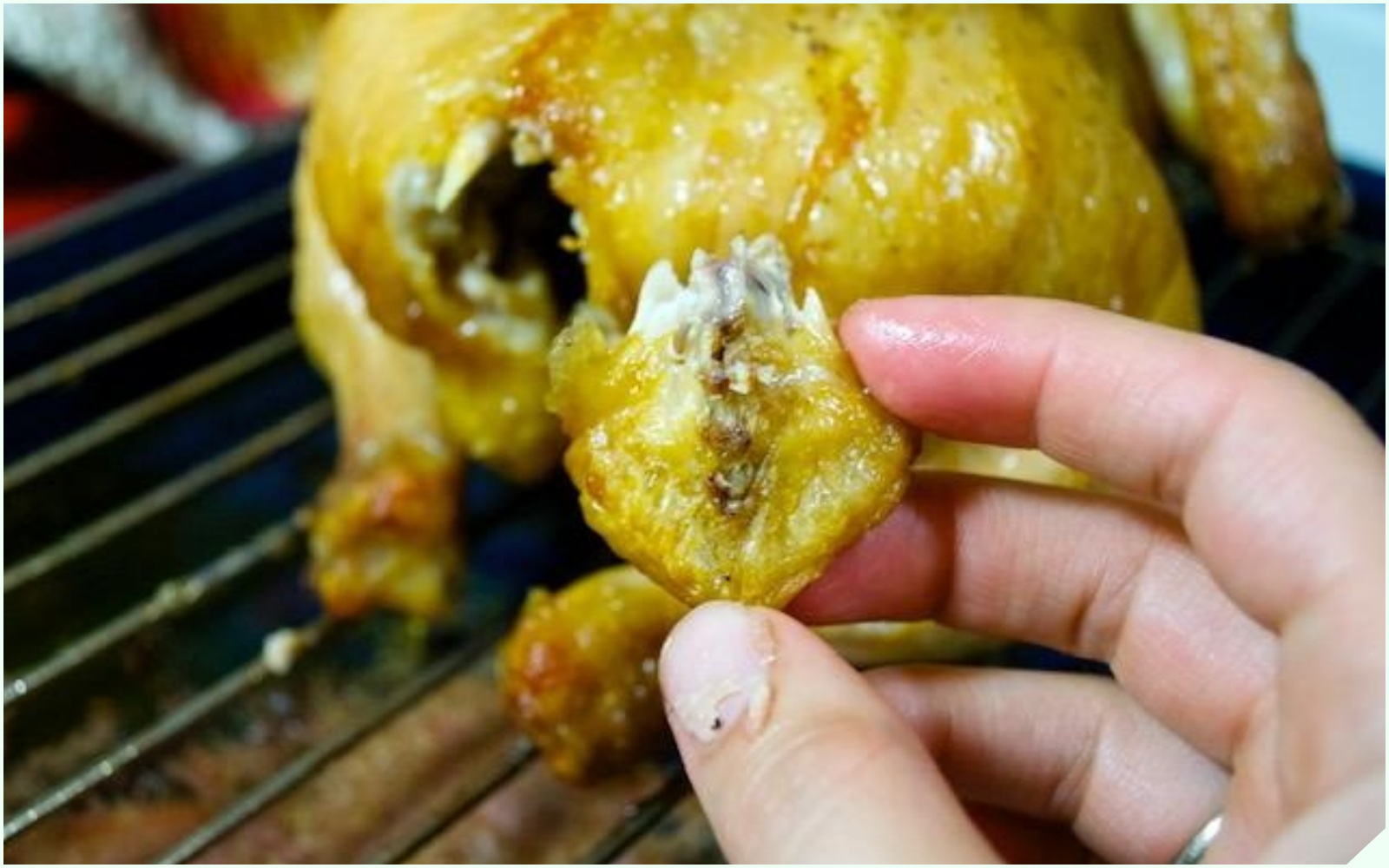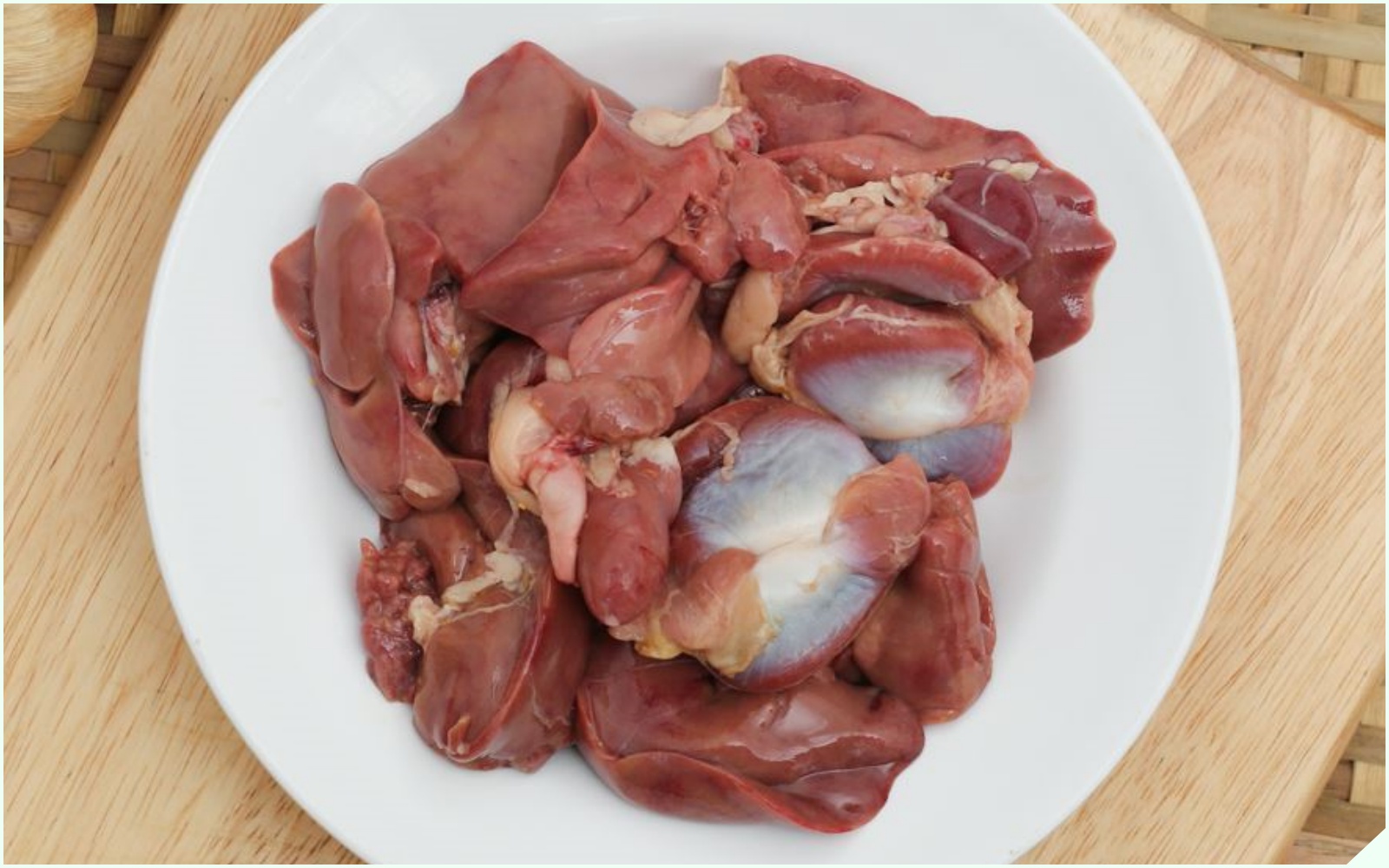
Chicken is an excellent source of protein, calcium, and iron, along with other essential trace elements. Even after cooking, this lean meat retains its nutritional value and is an excellent choice for those looking to lose weight or maintain their figure.
The versatility of chicken is another plus point. You can roast, boil, grill, or fry it according to your preference. Chicken dishes are universally loved by food enthusiasts, young and old alike.
However, despite its numerous health benefits, there are a few parts of the chicken that you should avoid consuming due to the presence of harmful bacteria and toxins.
1. Chicken Skin
It is common knowledge that chicken skin contains high levels of fat, bad cholesterol, and other harmful substances, especially when deep-fried or grilled. High-temperature cooking methods can cause the formation of carcinogenic compounds, increasing health risks.

Consuming chicken skin regularly can also lead to elevated lipid levels in the blood. Additionally, the area beneath the skin harbors a significant amount of bacteria and parasites, so it is advisable to avoid eating it frequently.
For those who enjoy chicken skin, it is recommended to consume it in moderation. Opt for skin from free-range chickens, avoid industrial chicken skin, and limit deep-frying or grilling at high temperatures.
2. Chicken Gizzard
According to a popular saying, “the gizzard and wing tips are the best parts of a chicken.” It is also believed that consuming gizzards can lead to healthier and shinier hair.
However, health experts advise against eating this part of the chicken.

Chicken gizzards contain a high concentration of lymphoid tissue and lymph nodes, which are breeding grounds for various bacteria, viruses, and toxins. They also harbor waste products and pathogens that are difficult to eliminate, even when cooked at high temperatures.
If you must eat chicken gizzards, ensure they are thoroughly cleaned and prepared. Remove the gelatinous substance, rub the gizzards with salt, and rinse multiple times before cooking.
3. Chicken Neck
While many people enjoy the neck for its tender and flavorful meat, it is not the healthiest choice. The neck contains numerous lymph nodes, which are responsible for detoxifying the body, making it less than ideal for consumption.

Chicken necks can be prepared in various ways, from appetizers to main courses served with hot rice. Despite their delicious taste, they should be consumed in moderation.
If you wish to eat chicken necks, it is recommended to remove all the fat and lymph nodes from the skin. Rubbing salt and thoroughly cleaning the necks can help reduce potential negative impacts on your health.
4. Chicken Organs
Chicken organs are considered the dirtiest parts of the bird. Certain organs, such as the liver, lungs, and spleen, can harbor harmful toxins, so excessive consumption is not recommended. For instance, the spleen is a peripheral lymphoid organ that plays a crucial role in immunity and may accumulate pathogens. Similarly, the lungs, being the respiratory organ, can harbor various viruses and bacteria, which is why experts advise against consuming them.

Moreover, chicken organs are high in purines, which can increase the risk of gout if consumed frequently.
For those who still enjoy eating chicken organs, it is advisable to do so in moderation. When preparing these organs, stick to the heart, gizzard, and intestines. After thorough cleaning, these parts can be stir-fried, boiled, grilled, or made into a delicious salad.
The Ultimate Guide to Buying Bánh Chưng: Uncover the Secrets to Identifying High-Quality Treats
The traditional Vietnamese delicacy, Banh Chung, is often enjoyed during Lunar New Year celebrations, but consumers must be wary of the toxic variety cooked with battery acid. This harmful version can cause serious health issues, so it is imperative that buyers are vigilant and discerning when making their purchases to ensure they are acquiring the authentic, safe-to-consume Banh Chung.






































